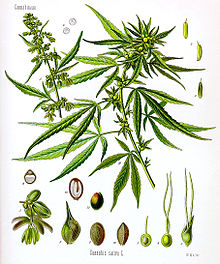Your favorite Clearwater criminal defense attorney just obtained a memorandum sent today to each federal prosecutor working in every United States Attorney's office. The memorandum outlines the factors which every prosecutor must now consider before pursuing marijuana trafficking cases.
Here are the six critical factors to be used by prosecutors in the future for every Department of Justice prosecution as delineated in the memorandum:
 |
| Is Cannabis Legal? |
1. Preventing the distribution of marijuana to minors.
2. Preventing revenue from the sale of marijuana from going to criminal enterprises, gangs and cartels.
3. Preventing the diversion of marijuana from states where it is legal under state law from being dispersed to states where it is not legal.
4. Preventing state-authorized marijuana activity from being used as a cover or pretext for trafficking in other illegal drugs or other illegal activity.
5. Preventing violence and firearm use.
6. Preventing DUI impairment from marijuana. Preventing the growing of marijuana on public parks or other public land or other federal property.
What is most interesting is the fourth paragraph which represents a sea change of policy from Attorney General Holder's previous guidelines for his prosecutors.
Now state authorized marijuana activity will be monitored to prevent its use in other illegal drugs or other illegal activity, whereas before even if a state had legalized marijuana, the federal government viewed the marijuana growing as illegal activity subject to the federal law of drug trafficking in itself.
Clearly citizens in states that do not allow marijuana will not be as likely as other citizens to be subject to the harsh minimum mandatory sentences for marijuana drug trafficking cases, which should bring some disparity of sentencing arguments as well as disparity of prosecution arguments into play by enterprising defense attorneys in every jurisdiction.
Here in Tampa Bay, Florida we can only hope that a new constitutional amendment legalizing medical marijuana will not only make the drug legal for medicinal purposes, but will stop at least some overzealous federal prosecutions that often result in unfair minimum mandatory prison sentences that judges do not have the discretion to go under. Because prosecutors always had more discretion under the Federal Sentencing Guidelines, this roll back of harsh sentencing by Attorney General Holder will save many people from being branded as criminal by our government.
No comments:
Post a Comment